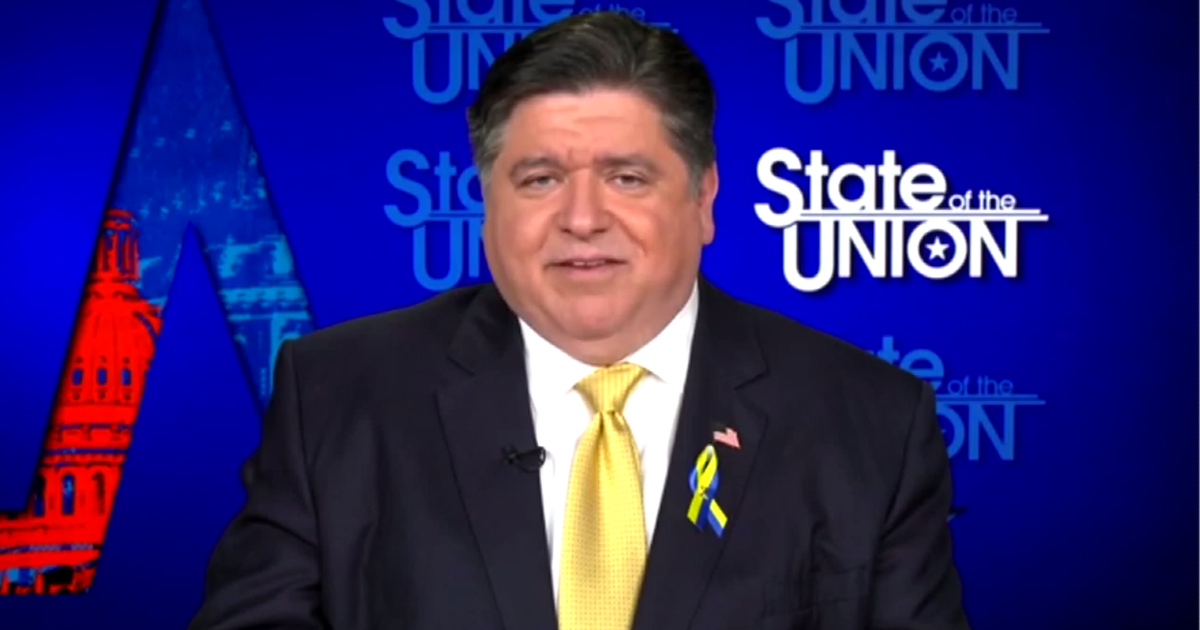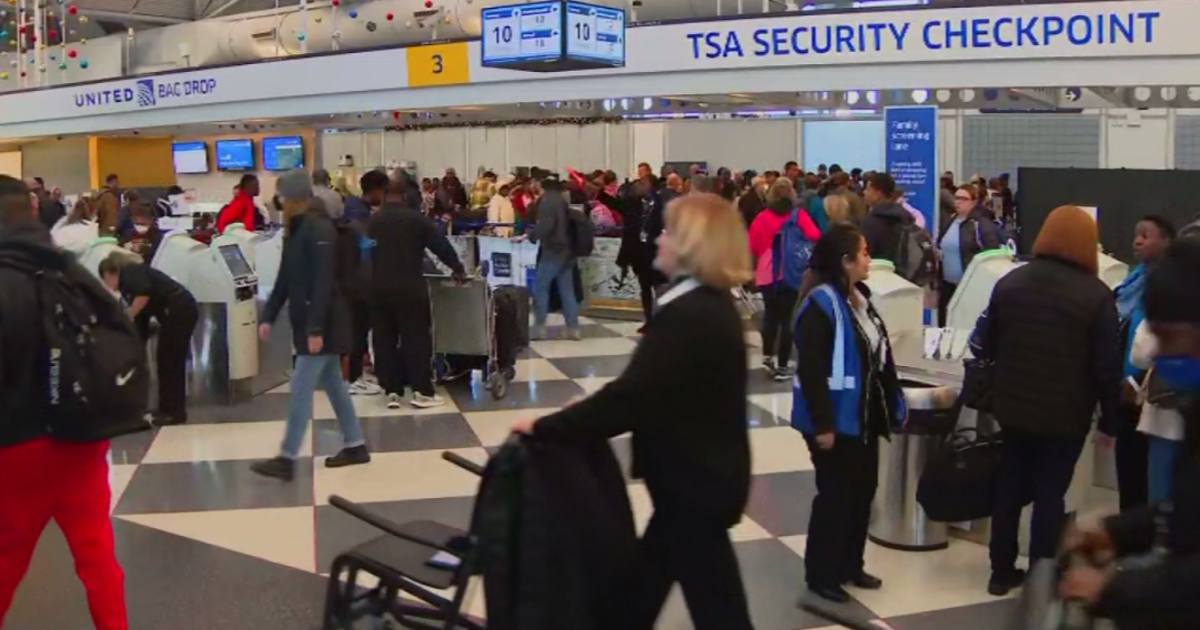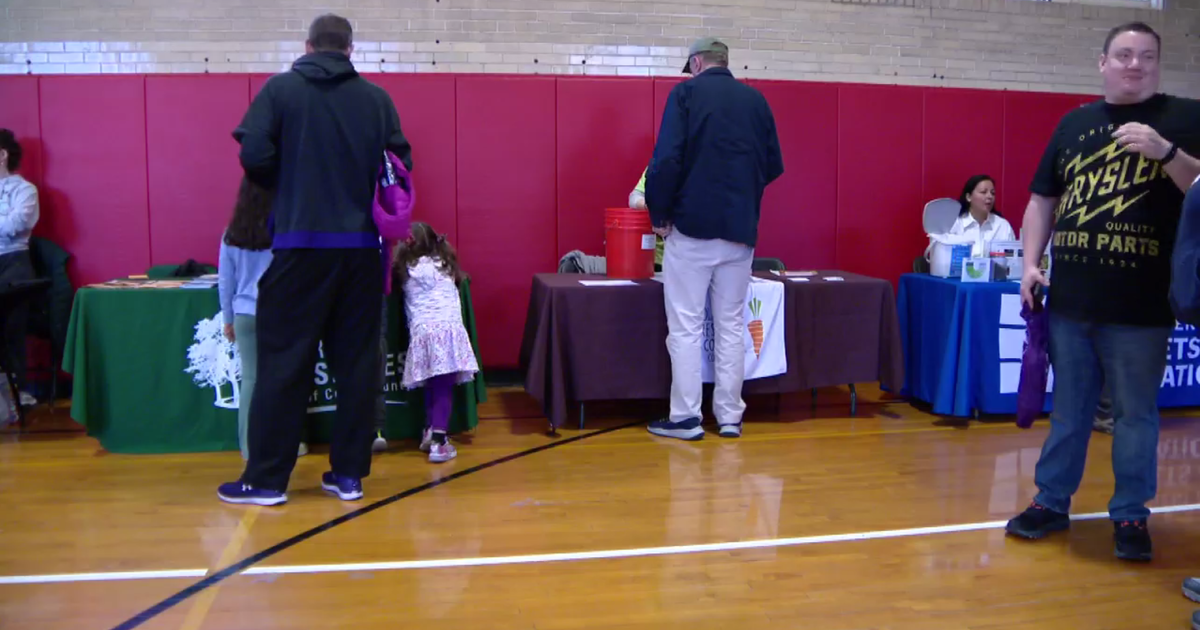Quinn Signs Medical Marijuana Legislation
CHICAGO (CBS) -- Illinois has become the 20th state in the U.S. to legalize medical marijuana on Thursday, after Gov. Pat Quinn signed a measure allowing doctors to prescribe the drug to patients with a limited number of serious medical conditions.
The governor signed the measure Thursday morning at the University of Chicago Medical Center, flanked by veterans and patients with chronic illnesses who would be able to take advantage of the law to obtain marijuana to alleviate their pain.
"It's very important we do whatever we can to ease their pain," Quinn said.
Medical Marijuana Now Legal In Illinois
Quinn would not speculate whether Illinois would eventually legalize marijuana for recreational use, as Colorado and Washington state have done.
"I think this is the right thing to do for today, and that's what I'm focused on, and I think that's the best way to go," Quinn said.
Nineteen other states and the District of Columbia already have legalized medical marijuana.
The measure in Illinois establishes a four-year pilot program to legalize the use of marijuana for medical purposes by patients with debilitating illnesses. Conditions that would qualify a person to get medical marijuana would include cancer, multiple sclerosis, HIV/AIDS, glaucoma, Alzheimer's disease, Crohn's disease, muscular dystrophy, severe fibromyalgia, spinal cord disease, and more.
"Our goal from the beginning was to provide a better quality of life for some very sick people in Illinois," said state Rep. Lou Lang (D-Skokie), who was the chief sponsor of the legislation." it'll be a signal to many people that the state of Illinois still has a good deal of compassion, a good deal of concern for those of us, under a doctor's care, who wish to try a new type of therapy to simply feel better."
Army veteran Jim Champion is a quadriplegic who has suffered from a progressive form of multiple sclerosis for 25 years. Champion has been using marijuana -- illegally -- to alleviate his pain. He said he once took 60 pills a day – including morphine and Valium – but after experimenting with marijuana, he was able to cut that down to 24 pills a day.
He said, he used to get spasms in his legs, which would sometimes last for days at a time. He compared the strain to when he ran in the Army, only he couldn't rest by sitting down, since he's already in a wheelchair.
"Finally, after taking just a couple hits off of a cannabis cigarette, they stopped. My legs stopped. No other pharmaceutical had done that for me. My wife was amazed, she couldn't believe it was stopped. I slept that night for the first time in … a couple weeks. It's like it shuts my nerves off," he said. "In 25 years, I think I've tried every pharmaceutical I could, and none of it worked."
He said he smokes one marijuana cigarette a day, a couple drags at a time, and occasionally eats food laced with marijuana for his pain.
Another multiple sclerosis patient, Julie Falco tells CBS 2's Courtney Gousman the drug has helped to calm her muscle spasms.
"I would make one inch cubed sized brownies that I took three times a day like regular medicine, and that's all I need to give me a sustained relief all day long," she said.
Doctors also realize the benefit. University of Chicago physician Tony Reder says medical marijuana "saves money, it saves side effects."
Lang said the regulations in the law are the strictest in the nation, among states with legalized medical marijuana.
"We made this the most controlled and highly-regulated bill in the country," he said.
Supporters have said Illinois' rules would protect against abuse of the medical marijuana law for recreational use.
"Unlike California, you're not going to be able to doctor shop. You're not going to be able to walk into an office, pay $100, and leave five minutes later with a recommendation," Marijuana Policy Project deputy director Dan Riffle said earlier this year.
Starting Jan. 1, the law allows doctors to prescribe marijuana to patients who have at least one of more than 30 medical conditions listed in the legislation. The doctor and patient also must have an existing and ongoing relationship.
Once diagnosed with an ailment that allows them to use marijuana, a patient would have to apply for a card from the Illinois Department of Public Health, allowing them to get no more than 2.5 ounces of marijuana every two weeks.
Medical marijuana could be purchased from one of 60 dispensing centers that would be established throughout the state. Patients could not grow their own marijuana. Rather, 22 growing centers would be overseen by the Illinois Department of Agriculture.
Dispensary workers would have to undergo background checks, and stores would be monitored by surveillance cameras 24 hours a day.
Dr. Burak Emin Gezen, of Chicago, was among the doctors who supported the legislation. Earlier this year, she said, for some patients, marijuana is the best – if not only – option to alleviate their pain.
"For some patients the … adjuncts that we have currently, opiates, they just don't work," she said.
The Chicago Crime Commission has said legalizing medical marijuana would "present serious public safety risks to the citizens of the state."
However, physicians who have signed on to support medical marijuana said it should be up to doctors – not police or prosecutors – to decide whether marijuana is the right treatment for their patients, and how much is needed.
They said those who benefit from medical marijuana should be able to obtain it safely and legally. They also said the laws should promote the doctor-patient relationship, not the dealer-patient relationship.
Even before Quinn officially signed the legislation, one clinic in Illinois had announced it was preparing to set up shop to evaluate patients for possible marijuana prescriptions.
Touting itself as the first medical marijuana clinic in Illinois, the "Good Intentions" clinic – teamed with Michiga-based Big Rapids Surgery – said it would open in Chicago on Aug. 7, and begin taking patient calls immediately.
"I anticipate that the State of Illinois will be using the next few months to sort out regulations and implementation of the program before the new law takes effect in January," said Tammy Jacobi, president of Good Intentions. "In the meantime, we encourage patients to contact us and learn more about how to become an Illinois medical marijuana patient. "
The Crime Commission also said the legislation does not provide for sufficient testing to determine if motorists have been impaired by marijuana use. The bill would require anyone with a medical marijuana permit to submit to a field sobriety test during a police traffic stop.
The legislation states that federally approved field-sobriety tests are adequate to determine impairment.
Supporters have said standard field sobriety tests are admissible in court, and the "divided attention" tests would sufficiently evaluate a driver's hand-eye coordination, and his or her ability to maintain balance and listen to instructions.
However, opponents have said such tests have not been shown conclusively to be effective in determining impairment by marijuana.
"It is critical that Illinois avoids the mistakes of states like Colorado, where passage of medical marijuana legislation resulted in a dramatic jump in crashes where the driver tested positive for THC, the active ingredient in marijuana," Crime Commission executive director Ways said in June.
Opponents also have said blood and urine tests would not be effective in testing for marijuana, because THC – the mind-altering chemical in marijuana – stays in a person's system for weeks, long after any impairment has worn off.



